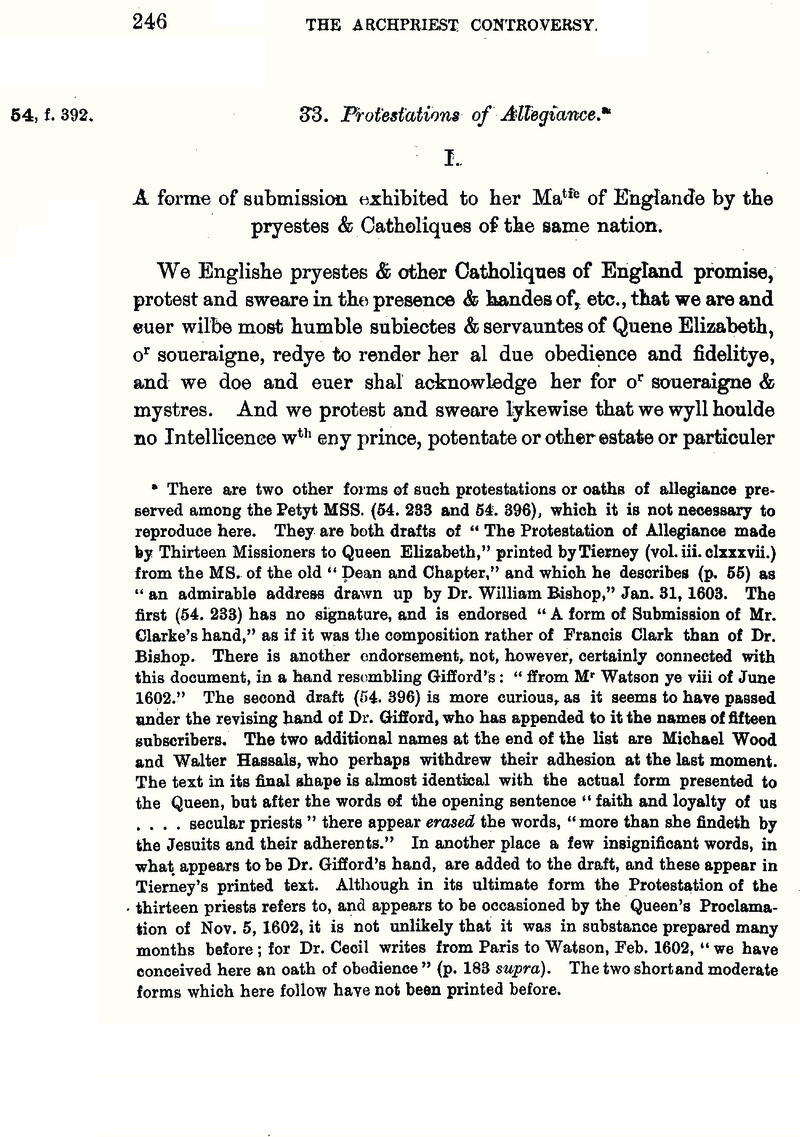No CrossRef data available.
Article contents
Abstract

- Type
- III. Letters and Memorials, 1601–1603
- Information
- Copyright
- Copyright © Royal Historical Society 1898
References
a There are two other forms of such protestations or oaths of allegiance preserved among the Petyt MSS. (54. 233 and 54. 396), which it is not necessary to reproduce here. They are both drafts of “The Protestation of Allegiance made by Thirteen Missioners to Queen Elizabeth,” printed by Tierney (vol. iii. clxxxvii.) from the MS. of the old “Dean and Chapter,” and which he describes (p. 55) as “an admirable address drawn up by Dr. William Bishop,” Jan. 81, 1603. The first (54. 233) has no signature, and is endorsed “A form of Submission of Mr. Clarke's hand,” as if it was the composition rather of Francis Clark than of Dr. Bishop. There is another endorsement, not, however, certainly connected with this document, in a hand resembling Gilford's : “ffrom Mr Watson ye viii of June 1602.” The second draft (54. 396) is more curious, as it seems to have passed under the revising hand of Dr. Gifford, who has appended to it the names of fifteen subscribers. The two additional names at the end of the list are Michael Wood and Walter Hassals, who perhaps withdrew their adhesion at the last moment. The text in its final shape is almost identical with the actual form presented to the Queen, but after the words of the opening sentenoe “faith and loyalty of us… secular priests” there appear erased the words, “more than she findeth by the Jesuits and their adherents.” In another place a few insignificant words, in what appears to be Dr. Gifford's hand, are added to the draft, and these appear in Tierney's printed text. Although in its ultimate form the Protestation of the thirteen priests refers to, and appears to be occasioned by the Queen's Proclamation of Nov. 5, 1602, it is not unlikely that it was in substance prepared many months before; for Dr. Cecil writes from Paris to Watson, Feb. 1602, “we have conceived here an oath of obedience” (p. 183 supra). The two shortand moderate forms which here follow have not been printed before.


